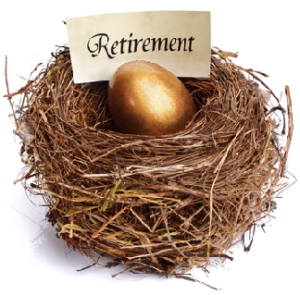In the UK it’s estimated that over 170,000 people fund their own care, whether they live in care homes or receive assistance in their own homes. However, due to the recession more and more people are struggling to keep up with the costs associated with this, meaning they now have to sacrifice their homes or rely on local councils to fund them.
It’s very important that you begin saving for your old age as early as possible, and it isn’t just your pension that you need to think of. If you manage to put enough money away, you should be able to cover the cost of your care without assistance.
What to do in your 20s
In your 20s you can usually expect to be in fulltime work and to be earning a reasonable income. Rather than looking ahead to your retirement at this age, you should instead focus on issues of the moment, including debt.
If you have any student loans hanging over your head, you should begin making contributions to repay them. Payments will automatically be taken from your monthly income depending on how much you earn and when you started your university course.
Repayment in England works as follows:
Plan 1
If you started your course before September 2012 you will begin to repay your student loan once your income is at or above £15,795. You will pay 9% of your remaining income before tax each month.
Plan 2
If you started your course after September 2012 you will begin to repay your student loan once your income is at or above £21,000. You will pay 9% before tax each year.
You can repay your loans faster by making additional payments to the Student Loans Company. If you also have student credit card debts, begin repaying them.
At the same time as this, you should also start to put money into an ISA each month. It doesn’t matter how much you save at this stage – anything is better than nothing.
What to do in your 30s
By now you can expect to be on a higher income and to have written off a substantial amount of your debts, if you have been making regular contributions.
Most will still have some debts that haven’t been cleared yet, so now you need to re-assess your finances to figure out how you can focus on clearing them. A lot of those in their 30s will also be beginning to consider buying a house and it’s common for people in this age
group to now have a family to look after. This will all put strain on your ability to save, which is why it’s so important to start early.
In order to start saving for your retirement rather than just saving for a rainy day, you should join your company pension plan. New auto-enrollment pensions were rolled out on October 1st 2012, which will automatically put those aged 22 and over into work pensions. This is currently only available for companies employing over 120,000 people. You may also want to consider investing in a personal retirement fund that’s separate from your ISA.
What to do in your 40s
In your 40s, you should begin dispatching additional income from pay rises and annual bonuses to your ISA and personal retirement fund, so that you can accrue savings at a faster rate. You may also want to use a pension calculator to find out how well you’re doing.
What to do in your 50s
Nowadays, many over-50s are finding that their savings don’t cover the cost of their retirement or care, as they failed to save effectively when they were younger. If you’ve been saving since your 20s though, you should be on the way to a good retirement fund.
At this stage you should begin thinking about when you want to retire. While in your 50s
you should also increase your pension and personal retirement savings contributions, as this will help to boost your fund for later life.
What to do in your 60s
All of the saving you’ve done throughout your life was for this decade. Most people will retire at age 67 based on new government outlines, and so you should begin winding down for your retirement. Continue to invest in your pension plan though, and decide how you want to access it.
If you find that you need to go into care, you’ll be able to rely on your savings to ensure you live in comfortable surroundings.
However, if your savings fall short you may still be able to get the care you need – it’s the government’s responsibility to pay for your care home fees if you have a serious health condition. You or a family member can request an assessment to find out if you qualify.
This article was contributed by Cheselden healthcare funding, a company providing free NHS assessments to those in care.
Images courtesy of Shutterstock.












{ 0 comments… add one now }